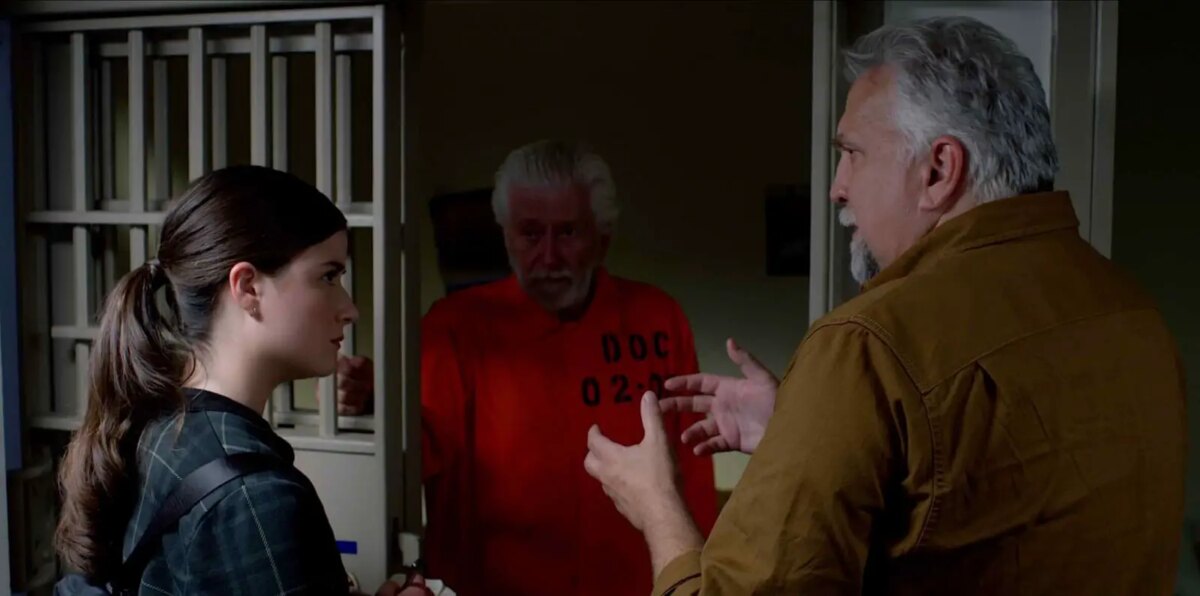
It’s not that Lucky Louie is a bad movie — in fact, it is cleverly edited, includes a strong helping of detective fiction, and has a good heart. But as a story, it is so milquetoast, so overwhelmingly sappy, that watching it is like drinking syrup. Despite all the good that father and daughter co-writer/co-directors Daniel and Grace Roebuck bring to the table, the film is watered-down to an unbearable degree. Indeed, this is not a bad movie, but it commits the worst possible crime for a whodunit: it’s boring.
The film follows aged police detective Wilbert Moser (Basil Hoffman), who, many years after his retirement, still dreams about the one robbery he could not solve. When a young criminology student (Madelyn Dundon) approaches him for insight on the very same robbery, Moser and his weekly Bible study group — all of whom are ex-convicts — decide to help solve the case once and for all. Who committed the theft, and why did it take so long to catch them?
Fundamentally, Lucky Louie aims to be a feel-good comedy. To that effect, the movie does quite well. The acting from the entire cast is convincing. Plus, there are several moments of wit and even the heist-esque nature of the mystery is well conceived. But as a “faith-based” feature, this runs afoul of the same wall that inhibits most Christian movies: it sanitizes anything even approximating impurity, including narrative stakes.
“…Moser and his weekly Bible study group…decide to help solve the case…”
It is a strange phenomenon that religious cinema seems to, as a duty, shirk the harsher aspects of day-to-day life. This is odder when considering that even the mildest-mannered comedy includes some danger, a bit of tantalizing frisson, to make it poignant. But the filmmakers seem risk-averse to an extreme, actively avoiding any and all trouble but depleting the production’s potential in the process.
Daniel Roebuck was reportedly influenced by The Andy Griffith Show as a child, which allows for an interesting point of comparison to Lucky Louie. Though spawned in the 1960s and neatly falling into the feel-good comedy category, the beloved sitcom frequently dealt with difficult topics such as class, socioeconomics, and sexuality. What gave the show longevity in the modern zeitgeist is not that it avoided those issues but that it considered them with humor.
Just as the characters in a story need not engage in a gunfight to face hardship, likewise, any narrative doesn’t need to avoid the harsher parts of life to enliven spirits. The film misunderstands this sentiment and, in fact, seems deadset on ensuring nothing whatsoever interrupts the good feelings it tries to establish. However, the result is a comedy that is both drab and uninspiring. Each scene is unnaturally telegraphed to the point of feeling cartoonish; the viewer knows nothing will go wrong at any moment.
All of this is a shame, as there is a lot of technical talent on display. The slightest allowance for obstacles in the narrative would have created a much more captivating experience. As it stands, Lucky Louie is a painfully bland film, but even worse, it is artificially sweetened.














